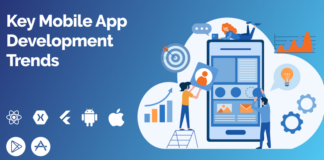Artificial Intelligence (AI) is transforming the education sector, offering new tools and methods that enhance the learning experience for students and educators alike. From personalized learning pathways to automated grading systems, AI is redefining how knowledge is delivered, absorbed, and assessed. As AI becomes more integrated into the classroom, it holds the potential to address challenges like access to education, learner diversity, and engagement.
Personalized Learning
One of AI’s most impactful applications in education is personalized learning. Traditional education models often follow a one-size-fits-all approach, but AI-powered systems can tailor learning experiences to meet the unique needs of each student. AI analyzes data on how students perform, what areas they struggle with, and how they prefer to learn, and it uses this information to create customized learning plans.
For example, adaptive learning platforms adjust the difficulty of lessons based on a student’s progress, ensuring they are neither overwhelmed nor under-challenged. This allows students to learn at their own pace, making education more inclusive and effective.
AI-Powered Tutoring Systems
AI-powered tutoring systems are another innovation changing the education landscape. These systems provide on-demand assistance to students outside the classroom, helping them with homework, test preparation, and specific subjects. Unlike human tutors, AI tutors are available 24/7, making learning more accessible.
These AI tutors use natural language processing (NLP) to interact with students in a conversational manner, answering questions and explaining concepts. As AI continues to advance, these tutoring systems are becoming more sophisticated, able to provide personalized support and feedback that is tailored to each student’s learning style.
Intelligent Content Creation
AI is also being used to create intelligent educational content, such as digital textbooks, interactive lessons, and quizzes. AI-driven content creation tools can break down complex subjects into digestible pieces, using multimedia elements like videos, animations, and simulations to enhance understanding.
For instance, AI can generate practice questions based on a student’s learning progress, ensuring that the content is aligned with their current level of understanding. AI-generated flashcards, summaries, and study guides help students reinforce key concepts and prepare for exams more effectively.
Automated Grading and Assessment
One of the most time-consuming tasks for educators is grading assignments and assessments. AI can automate much of this process, saving teachers valuable time that can be redirected toward instruction and student engagement. AI-powered grading systems can assess multiple-choice questions, essays, and even more complex problem-solving tasks, providing immediate feedback to students.
Beyond simply grading assignments, AI can identify patterns in student performance, offering insights into common areas of difficulty. Teachers can use this data to adjust their teaching methods, focus on problem areas, and provide targeted support to students who need it most.
Enhanced Accessibility
AI is playing a crucial role in making education more accessible to students with disabilities. For example, AI-powered speech recognition systems can transcribe lectures in real-time, helping students with hearing impairments follow along. Similarly, text-to-speech technology enables students with visual impairments to access written content, while AI-driven translation tools can assist non-native speakers in understanding lessons taught in a different language.
By breaking down barriers to access, AI is helping create a more inclusive educational environment where all students, regardless of their abilities, have the opportunity to succeed.
Predictive Analytics in Education
AI’s ability to analyze large datasets makes it an invaluable tool for predictive analytics in education. AI can analyze student data to predict future performance, identify at-risk students, and recommend interventions before problems escalate. For instance, AI systems can monitor factors like attendance, participation, and assessment results to identify students who may be struggling and need additional support.
Predictive analytics can also help educators design better curricula and teaching methods by providing insights into which strategies are most effective for different types of learners. By leveraging data, schools can make informed decisions that improve overall educational outcomes.
AI and Teacher Support
While much of the focus has been on how AI benefits students, it is also a valuable tool for teachers. AI can help educators manage their workload, provide data-driven insights into student performance, and even assist in curriculum development. By automating routine tasks like grading and administrative work, AI allows teachers to focus more on engaging with students and delivering high-quality instruction.
Additionally, AI-powered professional development tools offer teachers personalized learning opportunities, helping them stay current with new teaching methods and technologies. As AI continues to evolve, it will play an increasingly supportive role in helping educators maximize their impact in the classroom.
Ethical Considerations in AI Education
While AI brings many benefits to education, it also raises important ethical questions. Concerns about data privacy, especially in terms of how student information is collected and used, must be addressed. Schools and educational platforms need to ensure that sensitive student data is protected and that AI systems are transparent in how they operate.
Another challenge is ensuring that AI does not perpetuate inequalities in education. Access to AI-powered educational tools often depends on access to technology, which can vary significantly across different regions and socioeconomic groups. To ensure AI benefits all students, efforts must be made to provide equal access to these technologies.
The Future of AI in Education
The future of AI in education is full of promise. As AI technology continues to advance, it will likely become even more integrated into classrooms, offering new ways to enhance learning, engage students, and support teachers. AI’s potential to personalize education, improve accessibility, and streamline administrative tasks makes it a powerful tool for shaping the future of education.
However, it is essential to balance the benefits of AI with thoughtful consideration of its ethical implications. By addressing these challenges, educators, technologists, and policymakers can work together to ensure that AI contributes to a more equitable, efficient, and engaging education system.
AI is revolutionizing education by making learning more personalized, accessible, and efficient. From adaptive learning platforms to AI-powered tutoring systems, the applications of AI are vast and varied. As AI continues to evolve, it will play an even greater role in transforming how students learn and how teachers teach. However, addressing the ethical challenges associated with AI in education is crucial to ensure that it is used responsibly and for the benefit of all learners.






